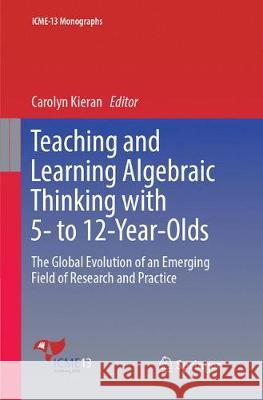Teaching and Learning Algebraic Thinking with 5- To 12-Year-Olds: The Global Evolution of an Emerging Field of Research and Practice » książka
topmenu
Teaching and Learning Algebraic Thinking with 5- To 12-Year-Olds: The Global Evolution of an Emerging Field of Research and Practice
ISBN-13: 9783319885865 / Angielski / Miękka / 2018 / 443 str.
Teaching and Learning Algebraic Thinking with 5- To 12-Year-Olds: The Global Evolution of an Emerging Field of Research and Practice
ISBN-13: 9783319885865 / Angielski / Miękka / 2018 / 443 str.
cena 722,88
(netto: 688,46 VAT: 5%)
Najniższa cena z 30 dni: 693,97
(netto: 688,46 VAT: 5%)
Najniższa cena z 30 dni: 693,97
Termin realizacji zamówienia:
ok. 22 dni roboczych.
ok. 22 dni roboczych.
Darmowa dostawa!
Kategorie:
Kategorie BISAC:
Wydawca:
Springer
Seria wydawnicza:
Język:
Angielski
ISBN-13:
9783319885865
Rok wydania:
2018
Wydanie:
Softcover Repri
Ilość stron:
443
Oprawa:
Miękka
Wolumenów:
01











